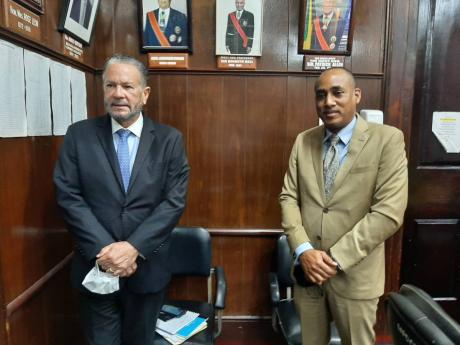Judge dumps garbage case against Dalrymple-Philibert, co-accused
House Speaker Marisa Dalrymple Philibert, her son, Giovanni Philibert, and gardener Simon Sanchez were freed on Monday after Parish Judge Larona Montague-Williams ruled that they had no case to answer in a case of illegal dumping brought against them last August.
While the accused at no time denied dumping garbage by the roadside near Salem, St Ann, on August 15, 2021, the attorneys-at-law, Peter Champagnie and Tom Tavares-Finson, said that their clients should not have been charged but rather ticketed for the offence.
Champagnie had previously argued that the case should be dismissed because the accused were instructed to pick up the garbage, which they did, before they were charged under the NSWMA Act.
“I submit there is no case to answer,” Champagnie told the judge during the hearing.
After being stood down on three separate occasions, the case finally got under way at noon and was concluded shortly after one o’clock in the St Ann Parish Court.
Allegations are that on August 15, Constable Howard Phillips and another law officer were on duty when they saw the accused dumping garbage at a site beside the main road.
According to Phillips’ statement, which was admitted into evidence, the accused were approached and told to take up the garbage, which they did. They were then escorted to the Runaway Bay Police Station and charged under the NSWMA Act.
The judge agreed with the defence that the accused should not be prosecuted because they did not leave the garbage there.
Section 46 (1), subsection A of the act, states, in part: “A person commits an offence if he- (a) throws, drops, or otherwise deposits and leaves any litter in any public place.”
“My interpretation is it should have been deposited and left … . The offence was not completed,” the judge said.
“Because of that, I cannot find that there is a case to answer,” she added.
The defence team later told reporters that their clients were relieved at the outcome of the case.
Tavares-Finson said that the ruling vindicated the defence’s initial concern that the trio should not have been charged.

